ChromeOS
Latest

Pixel Slate hands-on: Google’s 2-in-1 takes on the Surface
Google is cooking up a new formula for detachables, and it has an intriguing recipe with the new Pixel Slate. Though Microsoft has a solid desktop environment in Windows that makes its Surfaces excellent productivity tablets, it doesn't have the same library of touch-friendly apps that Android and iOS offer. The iPad Pro, on the other hand, is swimming in apps but just doesn't have the multitasking chops of a full desktop OS. Chrome OS seems like a potential opportunity to marry the best of Android, with its plethora of apps, with an established, functional desktop interface.
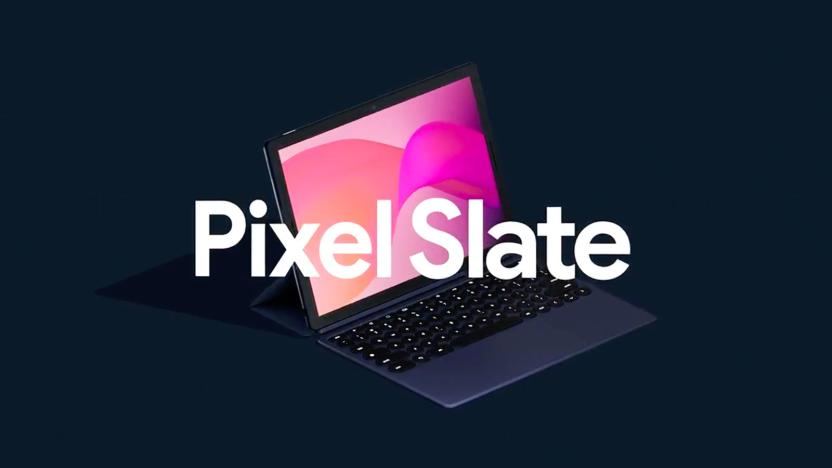
The Pixel Slate is Google's first Chrome OS detachable
Looks like the leaks were right after all. In addition to announcing new flagship phones today, Google took the wraps off a new premium tablet called the Pixel Slate. It's a Chrome OS-powered slate with a 12.3-inch display that's supposed to be the sharpest in its class. Google claims this isn't just a laptop pretending to be a tablet or a phone pretending to be a computer.
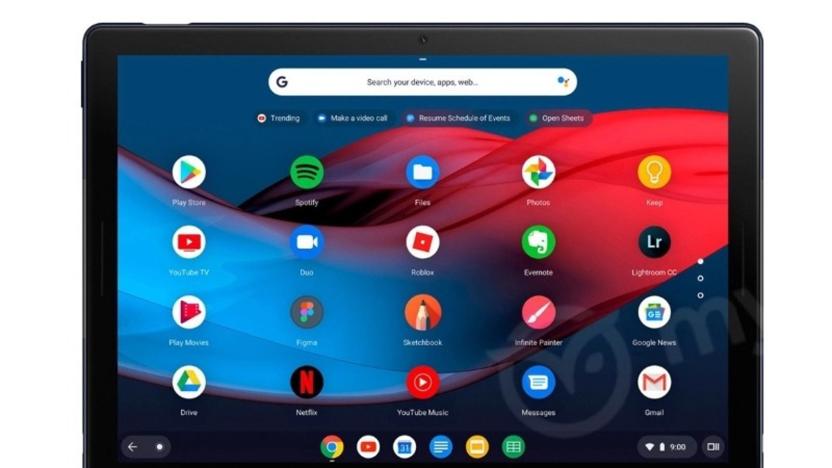
Google's Chrome OS tablet leaks in vivid detail
Yes, Google is still having trouble keeping a lid on product news ahead of its October 9th Pixel 3 event. MySmartPrice has posted what look to be images of Google's first Chrome OS tablet, believed to be called the Pixel Slate, and there's clearly more to the story than we saw the first time around. There's a newer (and possibly Pixel Slate-specific) interface than what we saw on Acer's Chromebook Tab 10, for one thing. The image also provides a clearer look at how detachable keyboards will work, with a pogo pin connector on one side turning the Slate into a laptop -- and yes, Google would have its own keyboard (below).
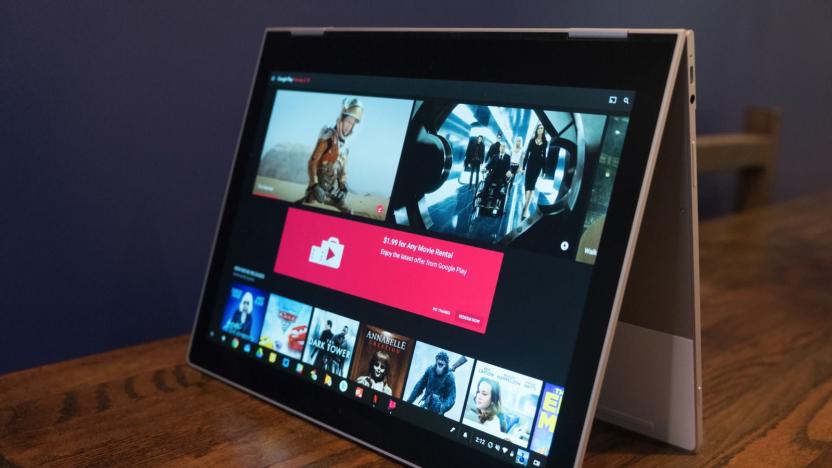
Google's Chrome OS tablet might support Windows 10
Google's rumored Chrome OS tablet may have an extra trick up its sleeve: namely, that you might not have to run Chrome OS at all. The 9to5Google team has discovered some code references indicating that Google has been working on Windows 10 support for the future slate, codenamed Nocturne. "Windows 10 will BSOD early during boot," one Nocturne developer wrote.
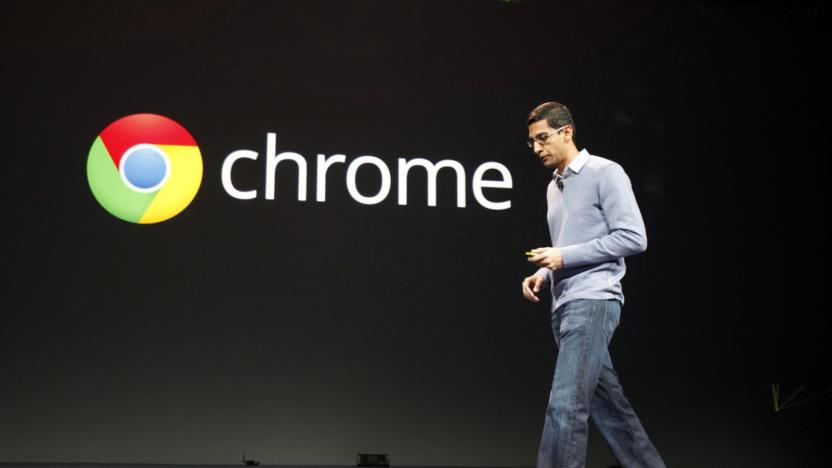
Just Google it: The journey from search to desktop OS
It's hard to imagine, but only 10 years has passed since Google launched the Chrome browser in September 2008. A world without Chrome feels like a distant past -- it's now the most popular browser by a wide margin. Barely a year after Chrome debuted, Google introduced Chrome OS. "It's our attempt to re-think what operating systems should be," Sundar Pichai, then the VP of product management, wrote in a blog post at the time. He described Chrome OS as an open-source desktop operating system that was a "natural extension" of the browser.

This might be Google's first Chrome OS tablet
If you suspect that Google might have more to show at its October 9th event than the Pixel 3 series and the Home Hub, your theory could be well-founded. About Chromebooks has discovered a Chrome OS tablet keyboard from Brydge that includes an image of what appears to be Nocturne, a likely Google-made tablet that has appeared in Chromium code for the past several months. While there is a chance that it's just a render, there are hints that this isn't just a flight of fancy.
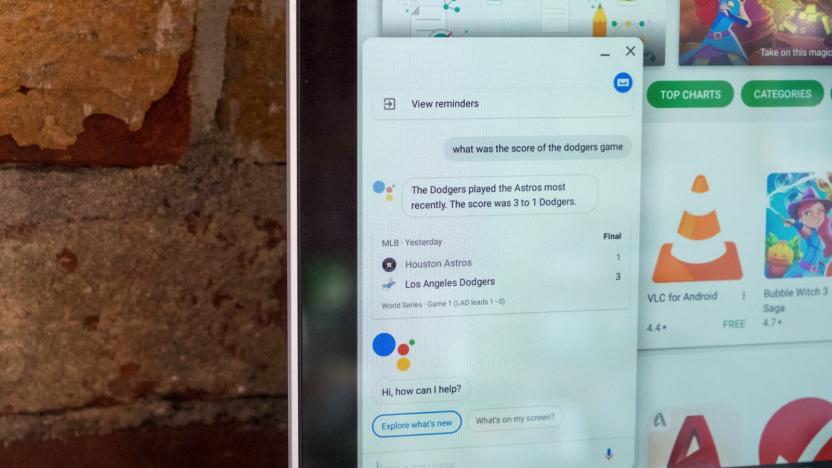
Chrome OS revamp delivers a new look and Linux app support
Now that the Chrome browser has received a makeover, it's Chrome OS' turn... and it's about more than just feature parity. Google has released a Chrome OS 69 update that introduces the updated Material Design visuals alongside a few features that could make your Chromebook decidedly more enticing. Most notably, there's now support for running Linux apps. You'll need a supported machine (a handful of machines from Acer, ASUS, HP, Lenovo, Samsung and Google itself). Still, this could be more than a little helpful if you want to run a conventional desktop app or command line terminal without switching to another PC or a virtual environment.
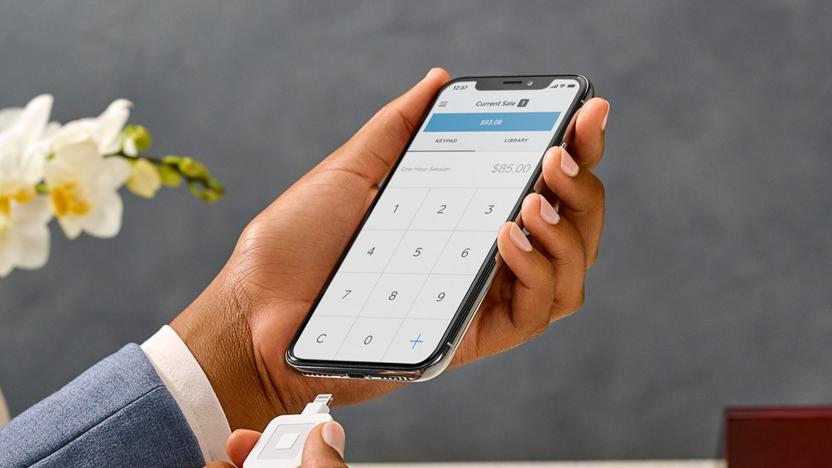
Square finally has a Lightning card reader for newer iPhones
If you have a newer iPhone, it's been a pain to take payments from magstripe cards using a Square reader -- without a native headphone jack, you've had to plug in a dongle and hold it steady while you serve a customer. Isn't Square overdue for a more iPhone-friendly version? Thankfully, it's here. You now have the option of a magstripe reader with a Lightning connection instead of the usual 3.5mm plug. There's nothing new apart from the port compatibility, but the identical $10 price makes it an easy choice if you run an iPhone-centric shop.
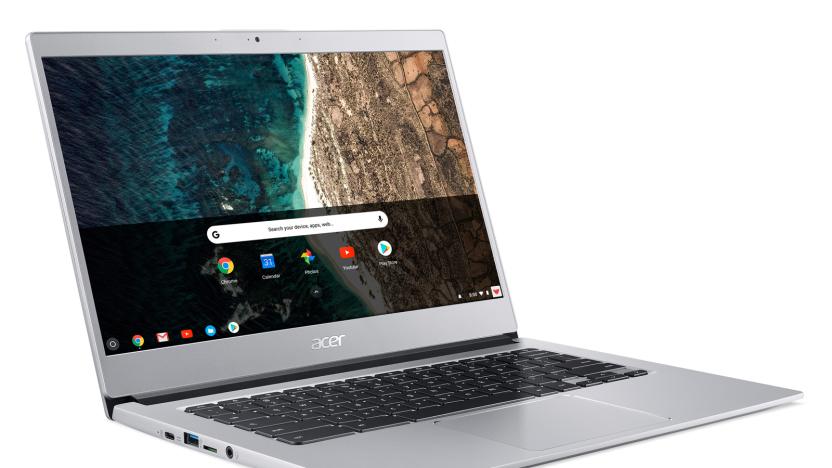
Acer's Chromebook 514 touts metal-and-glass design for $350
If you want a Chromebook made with premium materials and design instead of creaky plastic, that usually means spending extra on performance you don't necessarily need. Acer, at least, is trying to offer better quality without inflating the cost. Its new Chromebook 514 melds an aluminum chassis, a Gorilla Glass-covered trackpad and a thin-bezel (on the sides) 14-inch 1080p display for a $350 (€349) starting price. Acer is coy about the processor inside, but it is promising a healthy 12-hour battery, USB-C ports, an "HDR" webcam and an optional touchscreen.
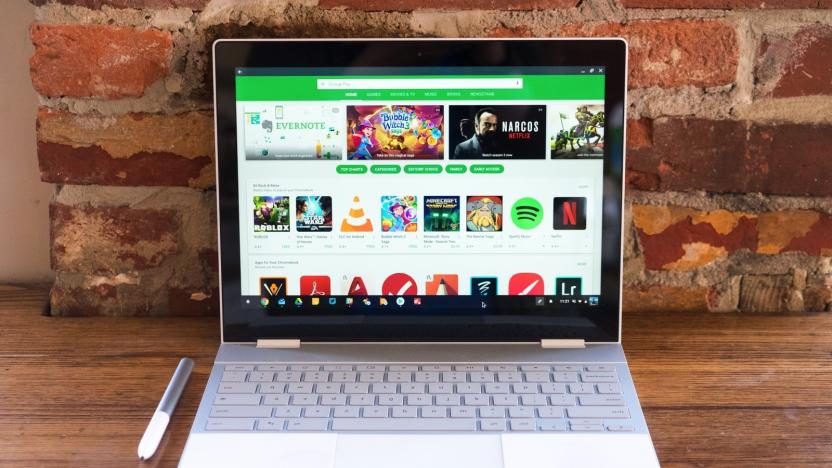
Chrome OS update makes installing Linux apps easier
With the power of tools like Crouton, anyone so inclined can already run Linux on a Chromebook. The process is a bit fiddly, however, and requires that you enable developer mode -- which carries potential security risks. Now, thanks to a recent Chrome OS update, you'll be able to launch .deb (Debian) packages minus such hassles.

Acer's business-focused Chromebooks arrive in September
Acer's entry into the premium Chromebook space is nearly here. The company has announced that both the conventional Chromebook 13 and convertible Chromebook Spin 13 (above) will come to North America in September at respective starting prices of $650 and $750. Splurge on these laptops and you'll get both a higher-quality aluminum chassis, a tall 3:2 ratio 2,256 x 1,504 screen (plus a Wacom stylus with the Spin) as well as the performance you don't always get with Chrome OS machines.
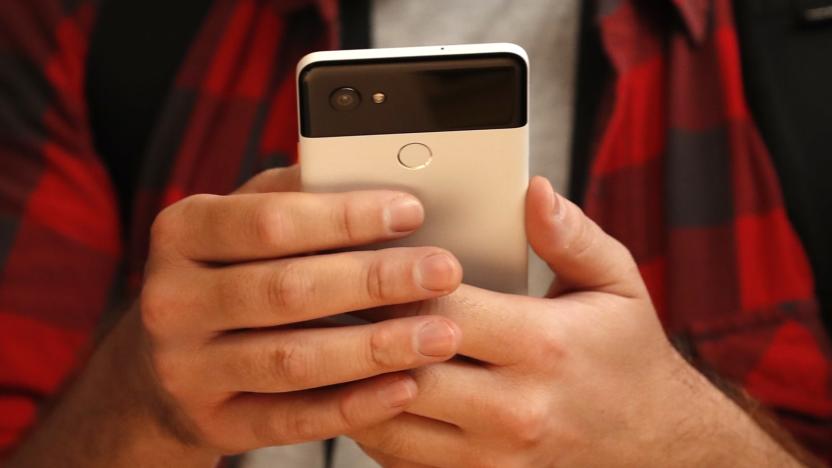
Google's Fuchsia OS could start replacing Android in five years (update: Google says no)
Google has been willing to acknowledge the existence of its Fuchsia operating system for a while, and has made rough versions available on everything from mobile devices to PCs. But is it just an experiment, or are there grander ambitions? We might have a better idea. Bloomberg sources have asserted that Fuchsia is ultimately intended to replace the company's existing platforms, including Android and Chrome OS. While executives haven't formally committed to roadmaps, engineers reportedly want to put Fuchsia on connected devices (like Home speakers) within three years, move on to "larger machines" like laptops, and put it on smartphones in the "next half decade." (Update: Google has told CNET that it's unclear when Fuchsia might start showing up on devices, lightly refuting the five-year plan Bloomberg outlined.)
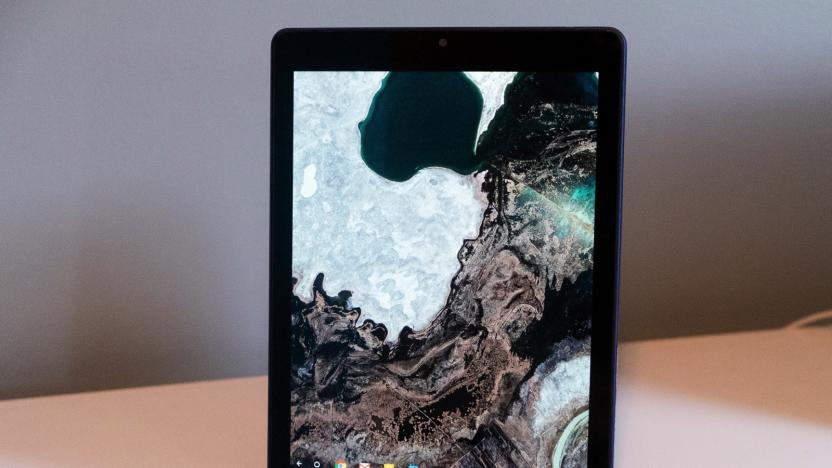
Chrome OS on a tablet doesn't make a lot of sense
Google and a wide variety of hardware makers tried for years to get Android tablets to catch on, but they were never able to match the success Apple found with the iPad. At the same time, though, Google's Chrome OS was gaining new features and finding traction with both individuals and in the education market. The latter has been particularly important -- and with Apple and Microsoft both pushing tablets for education, Google has decided it's time for Chrome OS to arrive on tablets as well. Enter Acer's awkwardly named Chromebook Tab 10, the first tablet to run Chrome OS. It costs $330 and is focused squarely on the education market. Acer built the device specifically for classrooms; the company has stressed that this isn't a tablet meant for the average consumer. As such, this device doesn't come close to matching the fit and finish you'll find on an iPad or Microsoft's new Surface Go. Still, it's the only Chrome tablet out there, so it's the only way right now to see if Google's OS works as well on a keyboard-less machine as it does on a laptop.
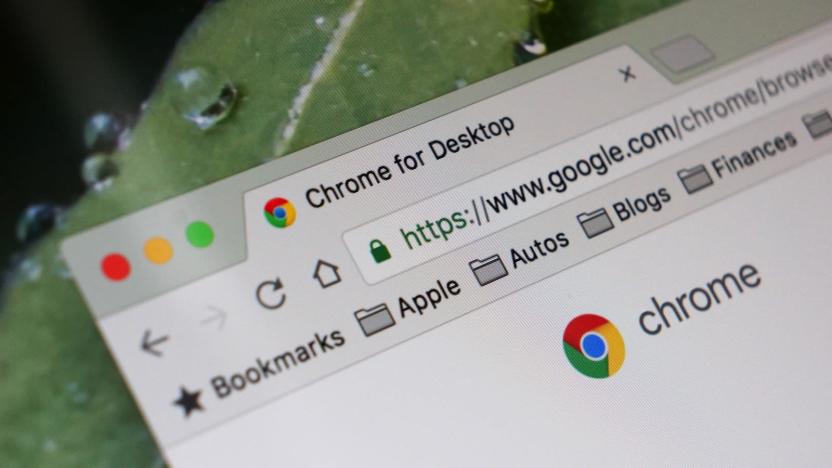
Google Chrome prevents sites from launching Spectre-like attacks
If you're using Chrome, you now have fewer reasons to worry about Spectre-style security threats. Google has revealed that Chrome 67 for desktop and the matching Chrome OS release enable a previously experimental Site Isolation feature that reduces the chances of intruders using speculative execution side-channel attacks like Spectre. The technique limits the web renderer process to content from a single site, preventing an attacker's page from sharing malicious code through an innocent page (say, though cross-site pop-ups or remotely stored scripts). In theory, sinister types can't swipe passwords or other sensitive data while you're visiting otherwise innocuous sites.
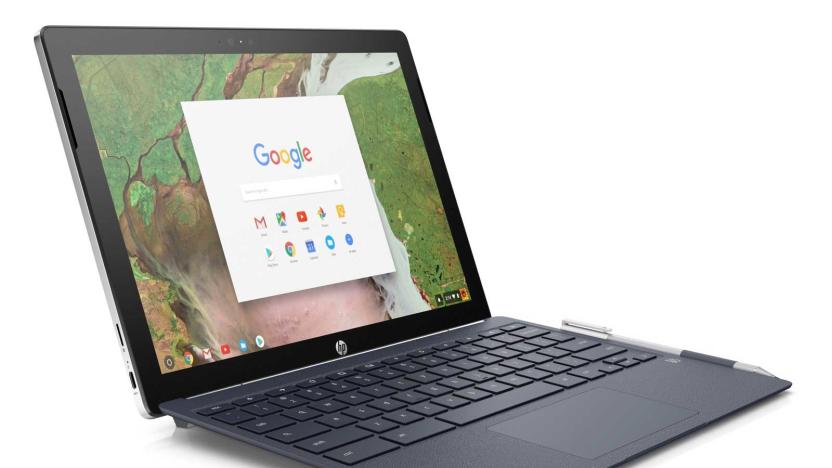
Snapdragon-based Chromebook could rival always-connected PCs
You don't have great choices for non-Intel processors on Chromebooks at the moment -- the Rockchip-made parts you often see in low-end systems keep costs down, but they struggle with intensive tasks. That might not be an issue in the future. About Chromebooks has discovered multiple code submissions hinting at "Cheza," a 2-in-1 detachable Chromebook that would use a Snapdragon 845 processor. While there are only so many clues you can obtain from code, this wouldn't be an entry-level device. The unit in testing is using a 2,560 x 1,440 display, and it's expected to have two USB-C ports. And since it's a Snapdragon 845, that would mean having a built-in gigabit-class LTE modem that could offer always-on access (rather important for an internet-centric device like a Chromebook, we'd say).

Google may be working on a way to run Windows 10 on a Pixelbook
Google's Pixelbook is a high-end laptop that runs Chrome OS. If you're looking to do more with the hardware, like run Windows apps, you may soon be in luck. According to a report at XDA Developers (and picked up by 9to5Google), Google may in fact be working on getting its high-end Chrome OS-based laptop certified to work with the Windows operating system.
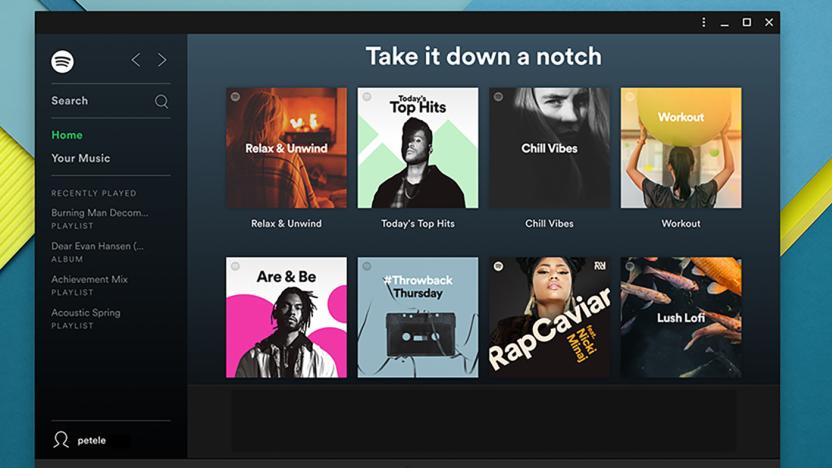
Chrome OS is fixing its app problem with Progressive Web Apps
Chromebook users are generally a happy lot, but few would argue that the biggest problem with Chrome OS is the lack of apps. Google is going a long way to correct that issue with version 67 of Chrome OS with the introduction of Progressive Web Apps (PWAs) for desktop. They appear on your home screen like regular apps, launch in the same way, and are quick and reliable because the service workers can cache all the needed assets.
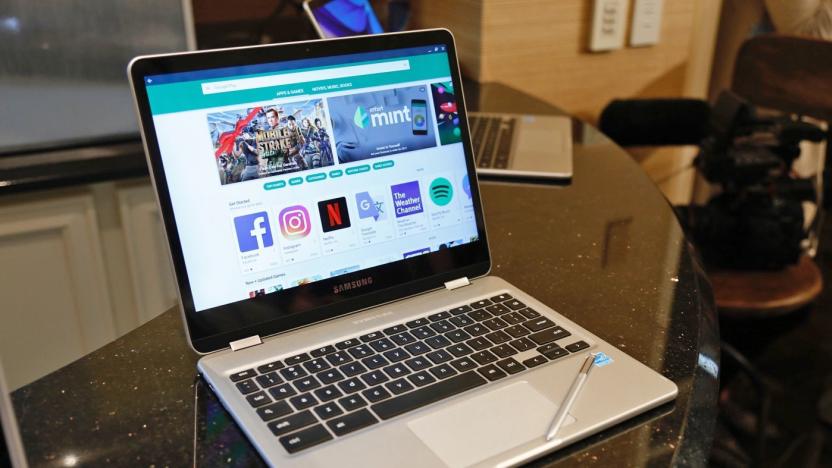
Samsung’s Chromebook Plus can run some Linux apps
If you've been hankering to play Minecraft on your Chromebook Plus, you now might be able to without a full Linux installation. At Google's I/O developer conference last month, the company said that Chromebooks will soon support Linux apps. That opens the machines up to a whole range of new tools and functions, and can make them vastly more useful in all kinds of ways. Google's own high-end Pixelbook was the first system to get Linux app support, and now it's coming to Samsung's Chromebook Plus -- albeit in unofficial fashion.
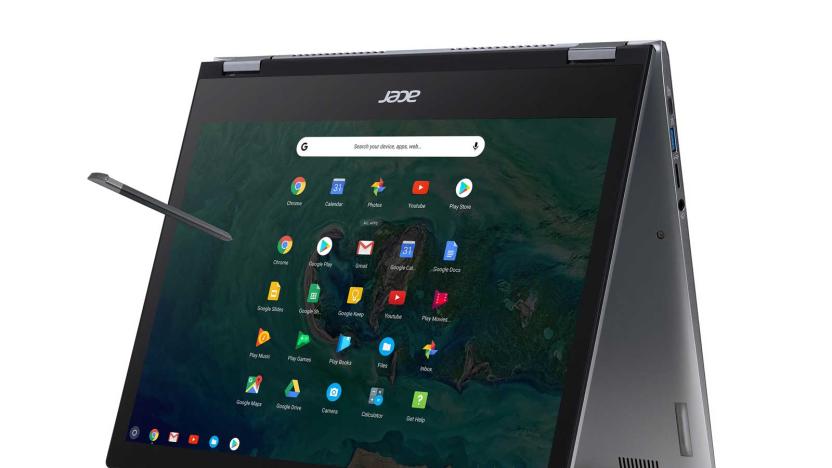
Acer's first high-end Chromebooks are built for business
Acer's Chromebooks to date have been entry-level models that you're more likely to find in grade school than the office, but the company is about to change its reputation. It's launching a slew of devices headlined by the Chromebook Spin 13 convertible and the regular Chromebook 13. Gone are the small screens, pokey performance and frugal builds associated with prior models -- the systems tout 3:2 ratio 13-inch screens, 8th-generation Intel Core processor choices, up to 16GB of RAM, all-metal shells and trackpads covered in Gorilla Glass. Like Google's own Pixelbook, these are for people who can use Chrome OS for heavy-duty tasks and are willing to pay for the privilege.

Chromebooks will soon be able to run your favorite Linux apps
Chromebooks have always generally been cheap and accessible, but now they're about to get a lot more capable. Google announced today that Chromebooks will soon be able to run native Linux apps in addition to the Chrome web apps and Android apps that they already support. Not surprisingly, Google's own premium Pixelbook will be the first to get Linux app support, though we're told other models will join in before long.







